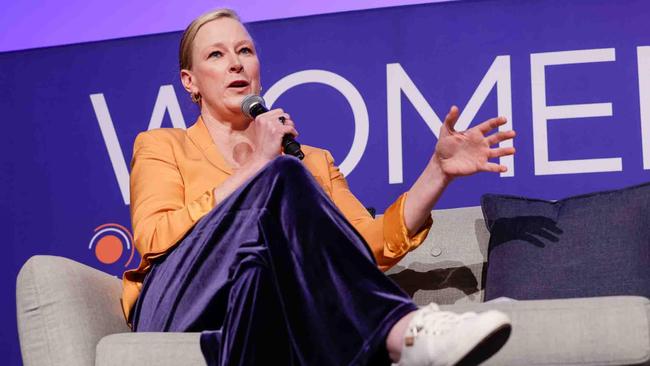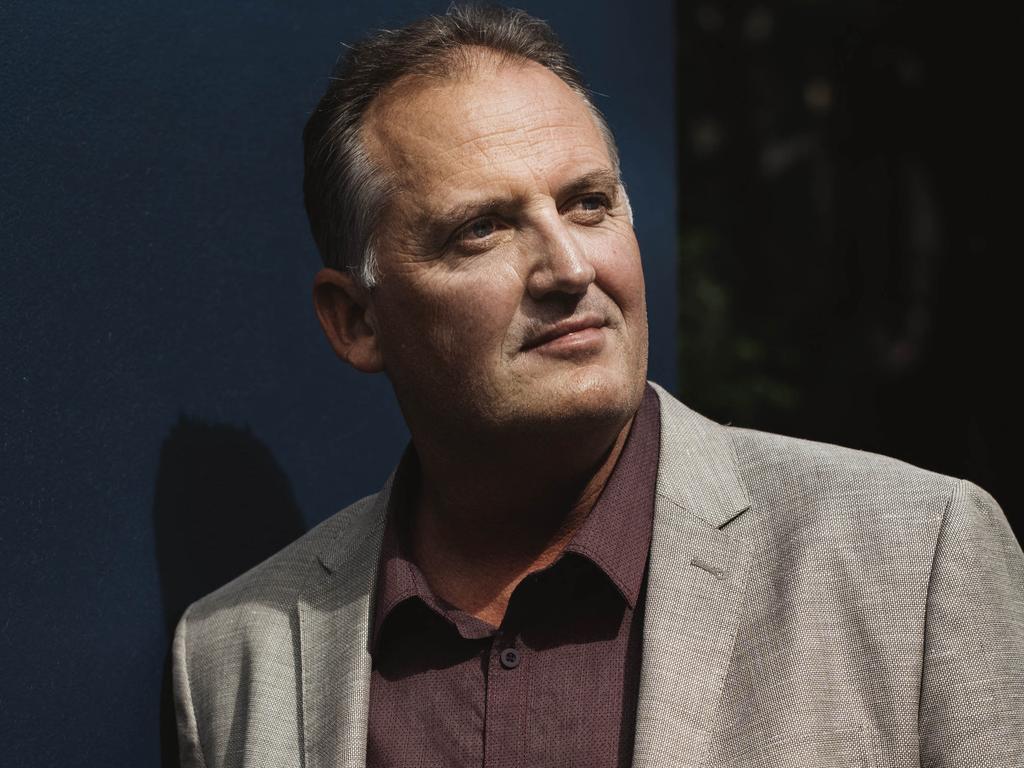ABC presenter Leigh Sales said she has concerns about activism journalism in the media industry
The high-profile ABC presenter has voiced concerns about the loss of ‘independent journalism’, and reporting with an ‘ideological bent’.

ABC presenter Leigh Sales has serious concerns about activist journalism and the increasing “blurring of lines” in the media industry.
Speaking at the Women in Media conference in Sydney on Saturday, Sales said while the surge in artificial intelligence and its effects on the media was of serious concern, activism by journalists was a bigger worry after becoming more prevalent in recent years.
“The AI (artificial intelligence) stuff is worrying but what worries me more is the blurring of activism and journalism and the loss of what I would call ‘independent journalism’,” she said at the conference.
“I’ve been worried about that for a long time. I wrote a book about this called On Doubt in about 2007 and now I look back and go, ‘Oh my god, I can’t believe I was writing about this in 2007, that was the Golden Age of independent journalism’.”
The comments come just two weeks after Sales instructed staff at the public broadcaster that the Uluru Statement from the Heart was a “one-page document” and that those arguing it was longer were wrong.
She gave staff exact instructions on how to beats arguments that the statement was many pages long, including scripts for employees to read during interviews if someone argued it was not a single-page document.
Sales, who hosts ABC’s Australian Story program, told the audience there had been worrying signs since 2007 that “organisations have picked out their ideological bent and they’re reporting from that”.
“I’m so big on things like setting aside your own opinion and trying to go into things with an open minded mindset.
“Fake news, misinformation … the bullying that occurs on social media, reporters are doing reporting that doesn’t fit with the zeitgeist or world view, that all really concerns me.”
The email instructing stuff about the length of the Uluru Statement was sent by the ABC’s editorial policy chief Mark Maley on August 24. In it Sales, the former 7.30 host, said an example of misinformation was “the claim that the Uluru Statement is a 26-page document”.
“That is inaccurate,” she wrote.
“The Uluru Statement from the Heart is a one-page document.”
The document’s length provoked much debate between the Yes and No camps and some pro-voice advocates, including Uluru Statement co-architect Professor Megan Davis, who in her newly-released book said it was “18 pages long”.
Earlier this month Sales did a sit-down interview with Ten’s The Project’s co-host Waleed Aly, and said she didn’t take positions on anything. If you “want to be a journalist, you have to leave your opinions at the door”, she told Aly.
She also told the Women in Media conference that diversity of perspectives in journalism remained vital to ensure stories were covered by people with lived experience.
“In any newsroom you want as much diversity as possible and I don’t just mean cultural diversity, I mean economic diversity … you want people who have come from working class backgrounds, you want people who have grown up in the country and not just inner-city Sydney,” she said.
“You want people that didn’t go to university as well those who went to university and you want people from all sorts of different cultural backgrounds. If you don’t have, for example, someone in your newsroom who grew up and their mother was on a single-mother pension … they’re not going understand really what stories about cost of living are like.”







To join the conversation, please log in. Don't have an account? Register
Join the conversation, you are commenting as Logout